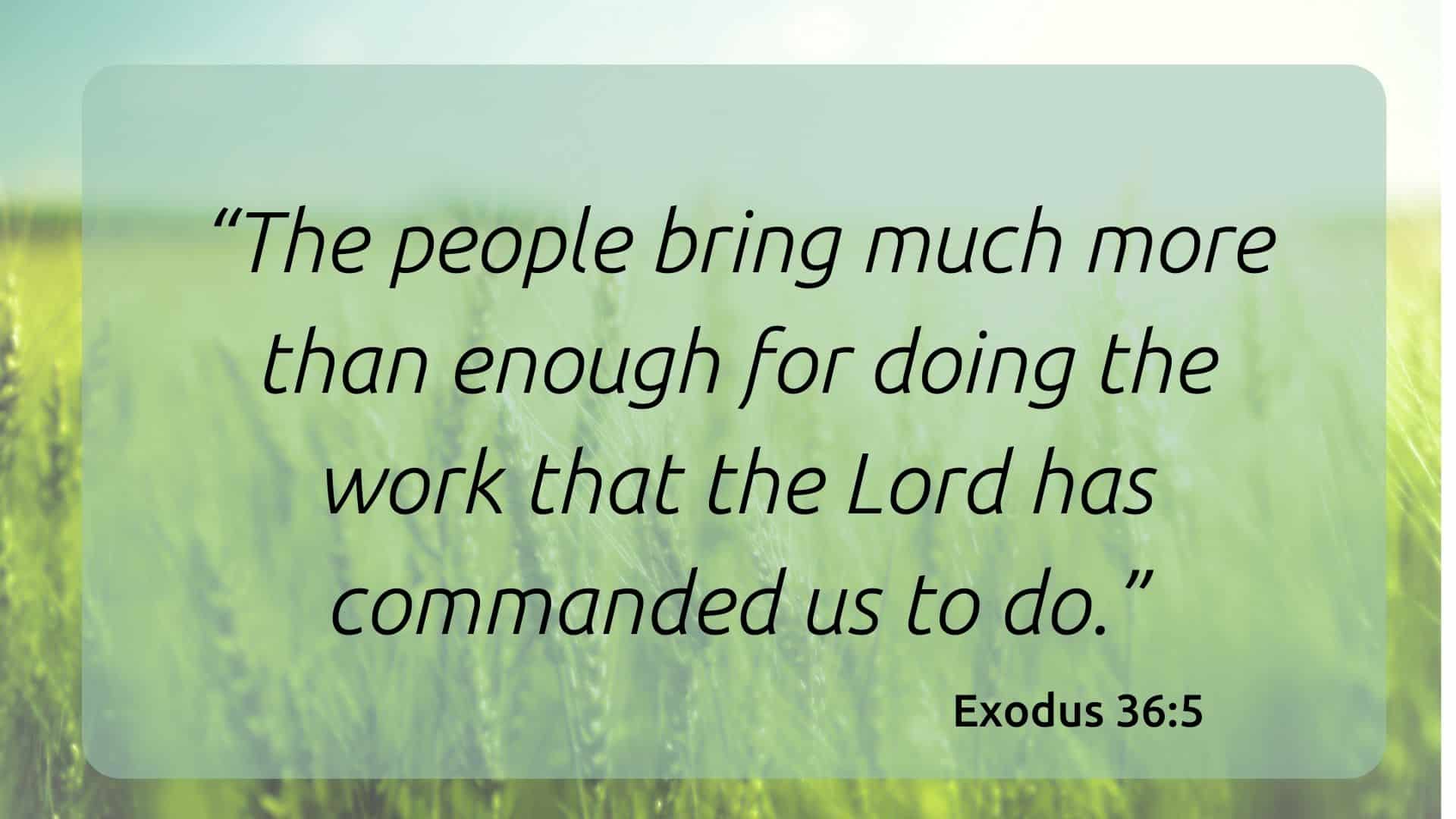“And Moses called Bezalel and Oholiab and every craftsman in whose mind the Lord had put skill, everyone whose heart stirred him up to come to do the work. And they received from Moses all the contribution that the people of Israel had brought for doing the work on the sanctuary. They still kept bringing him freewill offerings every morning, so that all the craftsman who were doing every sort of task on the sanctuary came, each from the task that he was doing, and said to Moses, “The people bring much more than enough for doing the work that the Lord has commanded us to do.”
So Moses gave the command, and word was proclaimed throughout the camp, “Let no man or woman do anything more for the contribution for the sanctuary.” So the people were restrained from bringing, for the material they had was sufficient to do all the work, and more.”
Exodus 36:2-7
A few short weeks after the people of Israel were freed from Egypt, the Lord called them to begin work on building the dwelling place of God: the Tabernacle. God called all “the men and women…whose heart moved them to bring anything for the work that the Lord commanded by Moses” (35:29) to bring freewill offerings. They were to bring what they had, whether a skill or contribution, to begin building the Holy Place.
Earlier in Exodus, the people feared that the Lord had left them, so they asked Aaron to build a calf out of gold. Aaron compelled the people to bring what gold they had so that he could melt it down and turn it into an idol that the Israelites could see and worship.
But here, just a few short chapters later, God is not compelling his people to give at all. He does not need their gold to fashion something to worship. Instead, he asks the Israelites to give what is in their heart to give. And this is not to build a statue that can be melted down, but a dwelling place where the Holy God can meet with His people. This was a place that the glory of the Lord filled (40:35) and the Israelites could see it throughout all their journeys.
God invited his people to participate in the building of the Tabernacle with Him. To some he gave gifts of craftsmanship like woodworking, embroidery, tanning, and metalwork. To others he gave the ability to donate the precious stones, metals, spices, and fabrics that would be crafted into beautiful symbols that filled the tabernacle. He did not require them to give, but asked that they give from a generous heart.
And there was more than enough.
So much so, that the craftsman building the tabernacle paused their work on the sanctuary, found Moses, and asked him to tell the people to stop bringing supplies and workers. Can you picture this scene? The craftsman glance around, knowing the enormous project ahead of them, and still conclude that there was more than enough gold, more than enough bronze, more than enough purple and scarlet yarn, more than enough volunteer laborers.
More. Than. Enough.
We believe the same is possible when helping to serve vulnerable children.
Like the construction of the tabernacle, finding solutions for vulnerable children seems an enormous task. Like the Israelistes, we are not forced to give what skills or goods we were given, but are asked to participate as the Spirit moves us.
And when we give what we have, we give:
- Knowing that through our generosity, there can be more than enough support for children in foster care or who are waiting for a family.
- Knowing that the Lord has gifted us each with a skill or gift that can be used for His glory.
- Knowing that the Church can be used as God’s largest tool in this enormous project.
What will you bring today as a contribution to the Lord?
